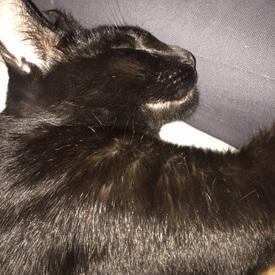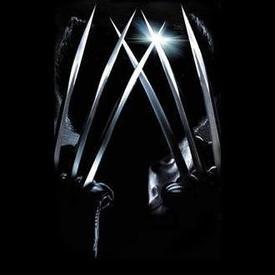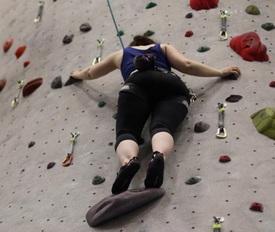Best Way to Check for Body Fat %

TeenageDream1369
Posts: 40 Member
I have a digital scale that, if you step on it barefoot, it reads out your supposed body fat percentage. Why does this work, how do I know if it's accurate, and is there a better (and affordable) way to know for sure what my body fat percentage is??
0
Replies
-
They're not accurate. Hydration and water weight levels can completely throw of the reading.
Buy yourself a pair of body fat calipers if you don't want to spend a lot of money.0 -
TeenageDream1369 wrote: »I have a digital scale that, if you step on it barefoot, it reads out your supposed body fat percentage. Why does this work, how do I know if it's accurate, and is there a better (and affordable) way to know for sure what my body fat percentage is??
It doesn't
It's not
Jump up and down in front of a mirror naked if it jiggles and is not boobs or genitals it's probably BF
0 -
Less affordable Dexa Scan
Less accurate (but better than scales) calipers or bf calculators (navy or army based)0 -
Mine seems inaccurate like it is really just a function of height and weight. If I weight myself then take off my clothes and my weight goes down a little so does my body fat. Which makes no sense. In fact if it was accurately measuring it and I weigh less the percentage should go up because it is higher in propitiation to my body. Example I weigh 100 pounds and have 20% fat. If I take off clothes that weighed 5 pounds, I now have 20 pounds of fat in 95 pounds or 21% fat. So obviously there are some inaccuracies with these scales.0
-
So here's the thing about BF% (I personally recommend using a tape measurer -- since a tape measure costs about $2) you can pay a lot and get a more precise number from a dexa scanner or body pod, etc., but what the most important thing is is that your BF% is going down. So pick a method (those home scales are iffy, but a place to start if you do it the same time every day, wearing the same clothes -- let's say in the morning after you relieve yourself) and then repeat that method once a week or once a month or whatever. As long as the trend is down, then it doesn't really matter what the EXACT number is. Just as long as you use the same method to measure it each time.0
-
Scales do not work. Have an extra glass of water and you will have a totally different result.
Dexa scan is accurate. I had one a few years ago, it was cool, so much data! (but moderately expensive).0 -
kyrannosaurus wrote: »Scales do not work. Have an extra glass of water and you will have a totally different result.
Dexa scan is accurate. I had one a few years ago, it was cool, so much data! (but moderately expensive).
@kyrannosaurus thank you love!!0 -

Here is a screen shot of some of the data I got with the scan. My overall body fat was 31.9% but my left arm was 41.4% fat. It's cool to see exactly how much fat/lean muscle mass you have and exactly where it is. I've since regained weight and am interested to see how much lean mass I lost in the process of re-losing the weight. So I plan on having another scan to find out.0 -
Those body fat scales are fine if you weigh daily and take a month long average on your spreadsheet. Not many people here doing that, I'd guess.0
-
LumberJacck wrote: »Those body fat scales are fine if you weigh daily and take a month long average on your spreadsheet. Not many people here doing that, I'd guess.
Fine for progress, not fine for an absolute figure .. not even close to fine0 -
You could try a Bod Pod.
In the UK it costs about £50 and is pretty accurate.0 -
@msf74 how does it work?0
-
kyrannosaurus wrote: »

Here is a screen shot of some of the data I got with the scan. My overall body fat was 31.9% but my left arm was 41.4% fat. It's cool to see exactly how much fat/lean muscle mass you have and exactly where it is. I've since regained weight and am interested to see how much lean mass I lost in the process of re-losing the weight. So I plan on having another scan to find out.
That's amazing!! Gotta save up for one of these. @kyrannosaurus0 -
kyrannosaurus wrote: »

Here is a screen shot of some of the data I got with the scan. My overall body fat was 31.9% but my left arm was 41.4% fat. It's cool to see exactly how much fat/lean muscle mass you have and exactly where it is. I've since regained weight and am interested to see how much lean mass I lost in the process of re-losing the weight. So I plan on having another scan to find out.
This is SO cool! I've never actually seen the results of a Dexa scan before. Do they interpret your results for you at all? Like tell you why your arms were different, health implications in general, recommendations? Or do they just hand you the results and send you on your way?
Also, I had no idea heads carried that percentage of fat! Really neat!0 -
TeenageDream1369 wrote: »I have a digital scale that, if you step on it barefoot, it reads out your supposed body fat percentage. Why does this work, how do I know if it's accurate, and is there a better (and affordable) way to know for sure what my body fat percentage is??
It doesn't
It's not
Jump up and down in front of a mirror naked if it jiggles and is not boobs or genitals it's probably BF
Post of the day right here! Rabbit is good, rabbit is wise.0 -
TeenageDream1369 wrote: »I have a digital scale that, if you step on it barefoot, it reads out your supposed body fat percentage. Why does this work, how do I know if it's accurate, and is there a better (and affordable) way to know for sure what my body fat percentage is??
To answer the "how does it work" question it works by sending a small electrical current through your feet and measuring how long it takes to complete the circuit. The longer it takes the more fat you have. However as people said hydration factors in because electricity travels faster through water than fat so you can trick the scale.
if you can't afford a dexa scan you can get a general idea with the circumference test.
http://www.weightrainer.net/circbf.html
http://www.healthstatus.com/calculate/body-fat-percentage-calculator0 -
TeenageDream1369 wrote: »@msf74 how does it work?
@TeenageDream1369
The Bod Pod? You sit in a capsule (a "pod") for a couple of minutes (that's all you have to do) and it uses air displacement to calculate your body composition.0 -
@msf74 neat! *adds to list of things to try*0
-
Anyone have thoughts on a bio-electrical impedance analysis done in a hospital setting?0
-
kyrannosaurus wrote: »Here is a screen shot of some of the data I got with the scan. My overall body fat was 31.9% but my left arm was 41.4% fat. It's cool to see exactly how much fat/lean muscle mass you have and exactly where it is. I've since regained weight and am interested to see how much lean mass I lost in the process of re-losing the weight. So I plan on having another scan to find out.
Thanks for sharing! I always wanted to see what the result report looks like for this test.
I always wanted to see what the result report looks like for this test.
0 -
-
The best and most accurate ways (hydrostatic weighing, DEXA, BodPod) are expensive, time consuming, require being performed by a professional, and hard to find.
Calipers have a lot of room for user error and bio electrical impedance has a lot of variables that can affect it. But both of these are cheap and easy, most gyms have that equipment, and they will do it for you. It won't be 100% accurate, but you can get an idea of where you are.0 -
IsaackGMOON wrote: »They're not accurate. Hydration and water weight levels can completely throw of the reading.
Buy yourself a pair of body fat calipers if you don't want to spend a lot of money.
calipers in an untrained hand are likely to be more inaccurate than a scale.0 -
LumberJacck wrote: »Those body fat scales are fine if you weigh daily and take a month long average on your spreadsheet. Not many people here doing that, I'd guess.
SMH. There not fine for knowing your body fat %.
0 -
Most scales are based on a formula that you can calculate yourself or use a handy online app that does the math for you.
http://www.bmi-calculator.net/body-fat-calculator/body-fat-formula.php0 -
They're not accurate and I'll bet if you read the small print, they'll tell you that their product doesn't really work.TeenageDream1369 wrote: »I have a digital scale that, if you step on it barefoot, it reads out your supposed body fat percentage. Why does this work, how do I know if it's accurate, and is there a better (and affordable) way to know for sure what my body fat percentage is??
You could go get tested. Until I read these boards, I didn't even know people got recreational DEXA scans. But they do. If you really want a very good idea of your exact body fat total, you could do that.
If you want to track progress without paying for (and having) a test, you can just take your measurements and keep a log.
0 -
victoriaamarie1330 wrote: »
That's a low deviation, it's more like 7-10%0 -
victoriaamarie1330 wrote: »
that 2% deviation is for the bod pod and DEXA scans. Not cheap scales.0 -
discretekim wrote: »Mine seems inaccurate like it is really just a function of height and weight. If I weight myself then take off my clothes and my weight goes down a little so does my body fat. Which makes no sense. In fact if it was accurately measuring it and I weigh less the percentage should go up because it is higher in propitiation to my body. Example I weigh 100 pounds and have 20% fat. If I take off clothes that weighed 5 pounds, I now have 20 pounds of fat in 95 pounds or 21% fat. So obviously there are some inaccuracies with these scales.
I'll bet your scale has/had instructions not to check body fat while clothed. At least mine did. I also had instructions for what time of day was best to measure it, though I don't remember when it was. Mine is fairly accurate. I had my BF% professionally measured and the scale was < 2% different. Not perfect, but good enough for day-to-day measurement IMO.0 -
My scales give me a BF reading of 30% ...checks self, laughs ..yeah that's a 6-7% error0
This discussion has been closed.
Categories
- All Categories
- 1.4M Health, Wellness and Goals
- 398.2K Introduce Yourself
- 44.7K Getting Started
- 261K Health and Weight Loss
- 176.4K Food and Nutrition
- 47.7K Recipes
- 233K Fitness and Exercise
- 462 Sleep, Mindfulness and Overall Wellness
- 6.5K Goal: Maintaining Weight
- 8.7K Goal: Gaining Weight and Body Building
- 153.5K Motivation and Support
- 8.4K Challenges
- 1.4K Debate Club
- 96.5K Chit-Chat
- 2.6K Fun and Games
- 4.8K MyFitnessPal Information
- 12 News and Announcements
- 21 MyFitnessPal Academy
- 1.6K Feature Suggestions and Ideas
- 3.2K MyFitnessPal Tech Support Questions














